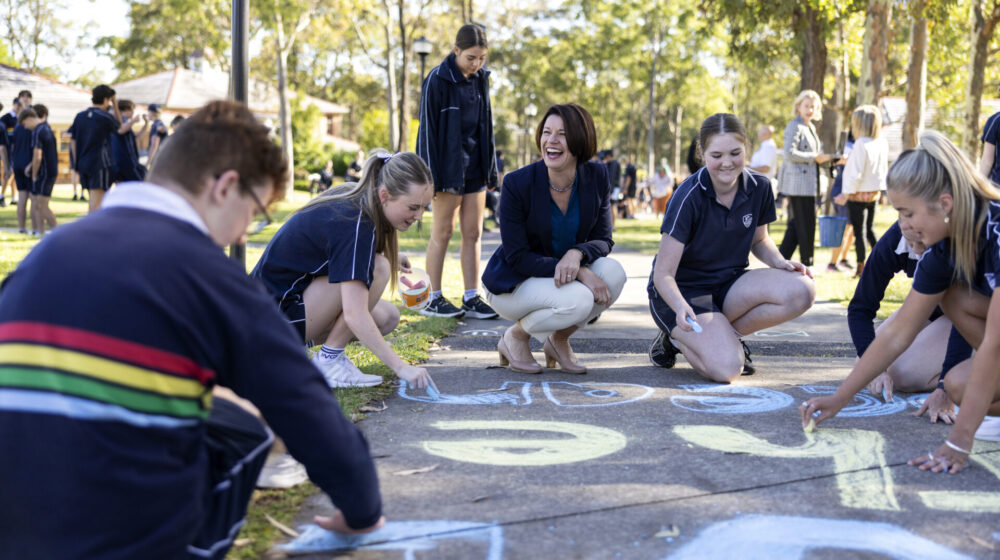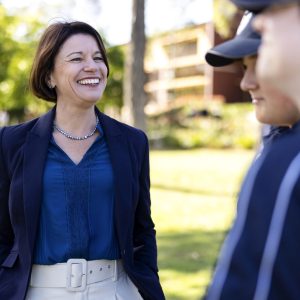Published on October 20, 2023
If you are anything like me, you have likely been overwhelmed by media reports over the last two weeks. Whether regarding the Voice Referendum, the growing conflict and humanitarian crisis in the Gaza Strip or the rapid onset of bushfire season, we have been witness to a depth of human emotion through news reporting and social media. At times reporting on current events taps into our shared humanity and compassion; at others time they focus on division and discontent.
In reflecting on how to navigate the complexity that is our world at present, I keep returning to the importance of kindness and, as the International Baccalaureate Mission Statement states, staying true to the idea that “others with their difference may also be right”.
When we, and our children and students, are bombarded with social media feeds and news accounts that highlight conflict, pain and human suffering, it can be hard to remember that a simple act of kindness for ourselves and each other can ground and centre us in the here and now. It can also help us focus on what we can do within our locus of control.
We feel most hopeful when we have a sense of agency. Agency comes from knowing where we have the power to influence our world, and recognizing what we are unable to change. If we know what we cannot change and let go of desire make a change that we cannot influence, then we re-direct our energy (our actions and our thoughts) towards what we can influence.

As parents we confront this all the time: we can see our children head down one path that we really don’t want them to go down or have different beliefs and values to ourselves. Homework has often been a battle in our house, especially when I get involved. It seems my educator brain turns off and I turn into the hovering, controlling parent I don’t want to be! Afterall I can see just how that task should be done or how much revision should be happening right now! However, I have learnt to step back from conflict by letting go of trying to control my child’s learning and instead letting his learning journey happen. It makes for happier evenings, but also more powerful learning. As parents we have multiple examples of the ways in which we should try and let go of our desire to control our children and let them be and grow into the people they are coming. Kids are a work in progress and will make mistakes along the way but are more resilient when we step out of the way.
To take this to a larger scale, as we engage with the seeming chaos and conflict across the world (and most recently in the Middle East) and look ahead to the challenges of a hot summer and extended fire season, we can reframe the conversations with students and children around building empathy and understanding. We can also not shy away from having the tricky conversations. In our homes we can control the remote (so what news we watch and when, including recognizing when we need to step back from seeing images of trauma) and our children’s devices. Knowing what our children are viewing, listening to and generally engaging with, and putting limits on this is important.
Likewise, within our control is the nature of the conversations we have at home about national, regional and global events. We can explore open ended questions that support both critical thinking and empathy building such as:
- What leads you to think that way?
- What might we want to know about that social media influencer or journalist before believing what they say?
- How might others be feeling who think a different way? How might we support those people?
- What more might we want to know before making a judgement about that person or group?
- How are these images and words making you feel? How might you know when it is all a bit too much for you?
- What could you do right now to take of yourself and/or others?
The last questions are really important. As parents when we take control by asking the right questions, we help our children pause, reflect, and tap into how they are feeling and open the space for them to explore ways of taking better care of themselves. This builds self-awareness and agency and is a powerful gift we can give our children. W
Likewise for ourselves: slowing down, checking in with ourselves, and making the choice to listen to or do something that is healing and centering supports our own health and role models the same for our children and students.
It is also gives us the energy to give back to our family and friends.
As we look at what is happening around the world and negative, sometimes conflictual messaging through the news and social media, it is important to refocus on our shared humanity, our own self-care, and building the agency and empathy of our young people.

